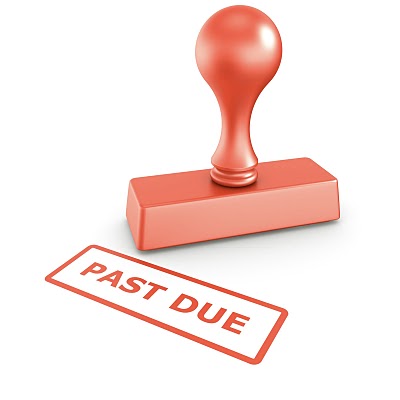Levies in arrears are always an issue for body corporates, but especially so when those arrears become substantial.
I have defined substantial levies in arrears as over 20 – 25% of total funds held – calculated by dividing levies in arrears by current total funds held. This is the point where liquidity will start to be challenged.
Why levies in arrears are such an issue
Imagine you’ve got together with a group of your friends and decided to go away for an all inclusive weekend. You pick a hotel, plan the weekend, book everything and pay a deposit. The big weekend comes and everyone has a fantastic time. When it comes time to pay one person suddenly says “sorry man, no money!” and doesn’t pay their share.
What would happen?
You can’t just walk away; the bill has to be paid.
The other members of the group would have to cover the non-paying member and hope to get reimbursed later.
And that’s exactly what levies in arrears are. Levies are calculated precisely to cover projected expenditure and if one person doesn’t pay their levies then the other members of the body corporate will need to cover that person’s contribution until the funds are collected.
Body corporate funds are managed in a way to be able to cover those delays in the short term and rules and regulations regarding recovery of levies in arrears have also been developed.
But what happens when a substantial number of lot owners get behind in their levies?
When levies in arrears are substantial
A body corporate is a legal entity just like a person, company or a trust, and it can enter into contracts and run up debts like any other legal entity.
And just like any other entity a body corporate can get into financial difficulty, be sued and made bankrupt, although it is very unusual for a body corporate to get that far into financial distress.
That’s because the body corporate is made up of a group of lot owners. If one, or even several lot owners get behind, or the body corporate funds are severely deficit then a special levy will be issued to quickly obtain more funds obtained.
The problem with this strategy is that those lots that are in arrears don’t usually pay this new round of levies either. And again, it falls to those lot owners who do pay their levies to cover those non-paying lot owners and prop up the body corporate’s finances.
The end result is stressed owners, a body corporate struggling to undertake even essential works and a slow down in the sale of the lots.
New body corporates are especially vulnerable
Ironically this situation usually occurs when a building is first registered and the sale of lots is paramount.
In Queensland as soon as the lots are registered the body corporate comes into being and holds it’s first EGM. Levies are issued at that meeting and are payable, usually immediately.
The developer is still the majority lot owner and is actively in the process of selling those lots. Levies on new buildings are usually kept low, artificially so, because of this reason. As the majority lot owner the developer is also the majority levy contributor. Each lot will be charged levies, and as their owner, the developer will need to meet those costs.
Some developers think that they can just pay the levies from the proceeds of the lot sales. This is a fine strategy if the lot sells quickly. Unfortunately not all the lots do. It can be months, years even, before a lot is sold and, if the levies don’t get paid, they very quickly morph into a substantial debt.
For the body corporate at least. A debt of $10,000 on a sale of $250,000 may seem small to the developer however for a body corporate it can represent a substantial portion of the budget.
It’s not long before those arrears start to impact cash flow of the body corporate and that has a flow on impact for the other lot owners.
Recovering from substantial levies in arrears
In most cases levies in arrears, and the associated collection costs and interest if the scheme’s by-laws allow, will eventually be recovered from the lot owners in arrears.
Eventually is the key term there. In a well-managed body corporate substantial levies in arrears is a short term problem.
When the body corporate has recovered those levies it will find itself suddenly flush with cash.
Don’t expect the levies to drop immediately however; It will depend on the severity and length of time the problem persisted as to what matters have been deferred in the meantime. These matters should now be addressed.
That said, surpluses in body corporate funds do result in lower levies or even refunds (refunds in body corporate funds do not result in actual cash changing hands; it will be issued as a reduction of your next levy issue).
Conclusion
If you have the financial capacity and emotion strength to weather hard times substantial levies in arrears is not a severe problem. Eventually, with persistence and follow-up from management it will work itself out.
If you’re stretched with your budget already this is probably a situation to avoid.
Substantial levies in arrears are a definite red flag in body corporate records. Do consider what processes the body corporate is taking to collect the outstanding funds and the level of creditors owing and, as always, seek advice from your solicitor.
*I have never seen a body corporate placed in administration however on several occasions I have seen body corporate’s so financially impacted by levies in arrears they simply cannot function. As one committee put it – “we’re one unpaid power bill away from having our electricity switched off, and that power bill is due!”


[…] a short amount of time substantial levies in arrears accrue and the body corporate runs out of cash. In these circumstances it often falls to the […]